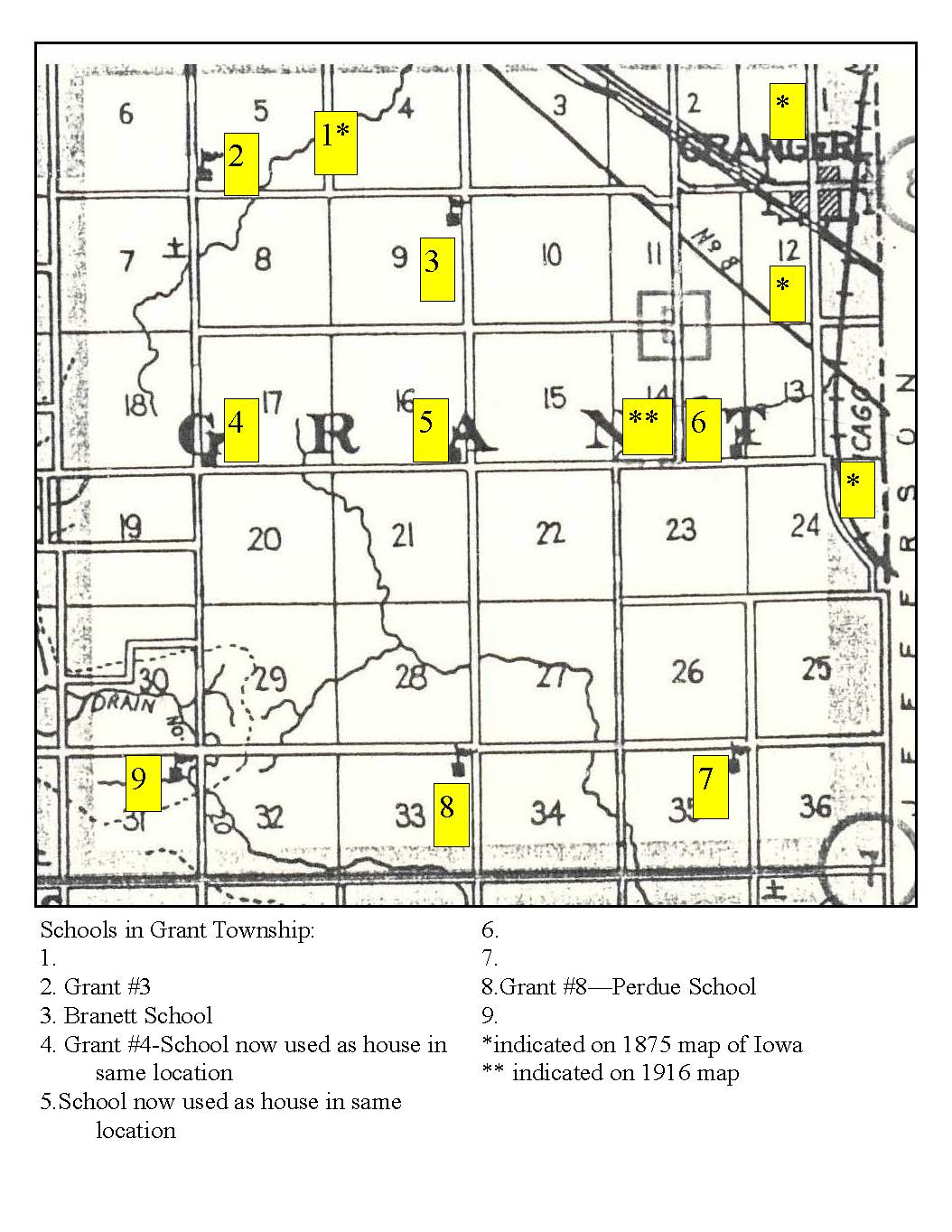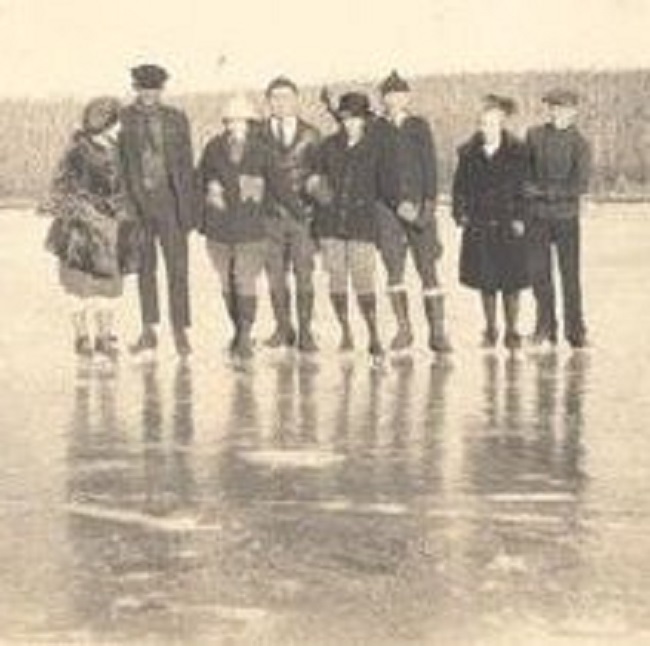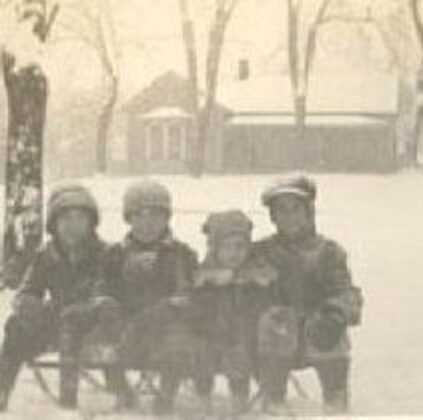This article comprises research conducted by Sue Leslie, Myrna Griffith and Deanette Snyder.
Township schools were set up with three sessions: fall, winter and spring. Fall and spring attendance was spotty since many of the young men were needed in the fields for planting and harvesting. Therefore, the winter term was the only time when many of them were able to attend school on a regular basis.
Winter brought many challenges both to the teachers as well as those attending the one-room school. Teachers were expected to arrive early to start a fire in the big, pot-bellied stove that stood in the center of most schools. By the time students arrived, the building would be warm – especially for those whose desks were close to the stove!
Those who sat farther away would either suffer the cold or ask to switch with someone closer to the heat for a while.
Lunches, which were stored in the entryway, would freeze before they could be eaten unless they were also moved closer to the stove. Sometimes a stew pot would be set upon the stove, and everyone would bring some vegetables to put in it. By lunchtime, the delicious aroma of hot stew would fill the school.
Getting to school could be a challenge because the ditches would often be filled with snow, waiting to trap an unwary walker. Charley Thompson recalled, “Like almost everyone, I walked to school no matter what the weather. One day it was -20°, and I started to school. I was almost there and, as a small child, I got stuck in a snowdrift. Luckily, my teacher had been watching for me and came and rescued me!”
Recess in the snow provided lots of fun, however. One game the students would enjoy was Fox and Geese. Depending on the topography, students would bring their sleds or skates and enjoy the outdoors. The topography in Grant Township, with its many hills, would have been favorable to sledding.
“In the winter we would bring our sleds to school,” Linda Burke recalled. “Behind the school was a hill with a barbed wire fence. We would rig the fence so we could slide under it down the hill to the frozen creek below.”
Rural schools were located at the corner of a farm field, so there wasn’t much protection from blowing snow. Without phones, a warning about an upcoming blizzard might not reach the teacher and students. Readers of Laura Ingalls Wilders’ book, “The Long Winter,” are familiar with the perils of students trying to get home in blizzard conditions.
Hazel Whitney recalled Armistice Day in 1940, when a farmer came to school at about 9:30 a.m. to fetch his and his neighbor’s children. He delivered the news that a winter storm was covering the state. Freezing rain soon turned to an icy covering, and strong, wind-driven snow followed. Other students who lived close by walked home safely.
In “More about a Room of Memories,” Frank Moore relates a similar situation when his father came with a bobsled led by a team of horses to take him and a friend home. They all lay in the bottom of the bobsled, covered with horse blankets, and let the two horses find their way home.
When asked later in life by his wife, “How in the world did the other kids get home?” Frank joked, “As far as I know, they are still there!”
Grant #3 was on the corner of T Avenue and 190th Street, Judy Royer Reves reported, and Lezlie Ellerman said that Grant #4 was two miles south of that.
In an ongoing effort to preserve the history of our township schools, we are seeking details on the names and locations of the other schools in Grant Township. If you have any information about these schools, such as their location or stories of students who attended them, our group would like to hear from you. Please contact Myrna Griffith at wpldirector@minburncomm.net or Sue Leslie at densueles@aol.com.




















